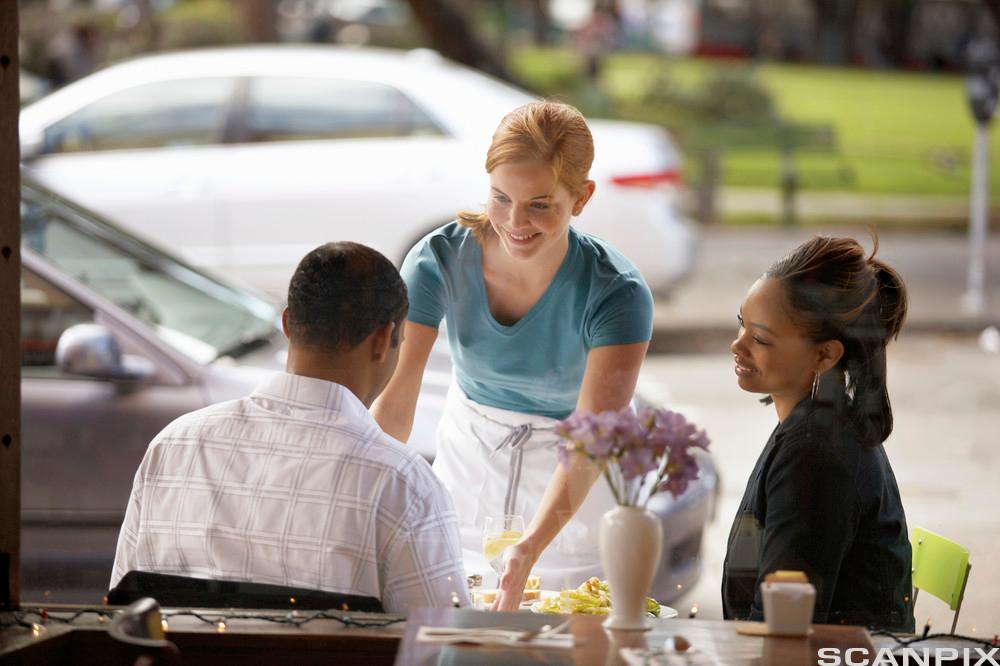Before listening, use the dictionary to check that you know the meaning of the following words and expressions: folding napkins; cutlery; quick succession; customer; organisational skills; cheery personality
A transcript of the interview
Thank you for agreeing to the interview. Can we start with what’s your name and profession?
My name is Emily Ashley and I’m a waiter.
And where do you work, Emily?
I work in Busby and Wilds in Kemptown, Brighton.
Why did you choose to be a waiter?
I fell into it by needing a job when I moved to London. I started working for a famous chef and I absolutely fell in love with food and service and wine.
Wonderful. What would you say a typical day looks like when you are working?
It’s about 14 hours. You start in the morning and you have to sort of set up from the night before,
so get ready for service with your cutlery and everything boring like filling up salt and peppers and folding napkins, getting menus ready, then you seat your customers. You have to do everything from taking the orders, serving the drinks, serving the food, cleaning the tables, taking the bills. And then by about midnight, you get to go home.
That’s a long day. What personal qualities do you think that you need?
Organisational skills. Being able to do ten things, not at once, but in very quick succession and knowing what order to do them in. A very cheery personality that grumpy customers can’t knock out of you.
Could you describe perhaps, a service that you provide?
I think the main elements in being a waiter is to try and guide customers to choose things that they would like to have. So, find out what food they like, find out what type of wine they like, type of beer they like and a read for the type of evening they are after. Some people come in just to eat and go, some people come in to spend three hours. So, reading customers and trying to match the elements of the service that you can best suit them.
What would you say you like best and least about your job?
I enjoy the socialising. I enjoy talking to customers. I enjoy suggesting (on) wine that they might not have ever tried before or a dish that they might absolutely love. I take a lot of pride in that sort of element. What I hate least is having food sent back or having lots of delays in the kitchens, so it takes a very long time for the food to come out. Or really rude customers.
How do you think this line of work will change in the future?
I don’t know really. I think it’s.. , I think the one thing people will always want to do is go out and eat and drink and socialise. So, it’s probably just expanding the food elements of it, depending on what happens in the next twenty years, depending on how the global climate will change. I think it’s just to try and keep up with that element.
And finally, where do you see yourself in five to ten years’ time?
Hopefully, owning a business that I don’t actually have to work in and I can just come up with many ideas and wine lists and raise my children.
Brilliant, thank you very much for your time.
Thank you.
